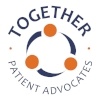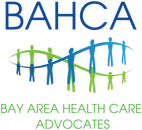
If you've just been diagnosed with heart failure, or need a review of the basics, here are a few things to be aware of.
There are two types of heart failure - diastolic and systolic. In diastolic heart failure, the heart muscle doesn't relax well so the filling is impaired. In systolic the "squeeze" of the muscle is weak thus it doesn't pump well. Both cause fluid build-up in the body which causes swelling (edema) and shortness of breath (when there is fluid in the lungs called pulmonary edema).
Systolic and diastolic heart failure have different causes and different treatments. Knowing your ejection fraction (EF) will help you know which type you have. In diastolic heart failure (also called Heart Failure with preserved Ejection Fraction, or HFpEF), the EF is normal (over 50%). In systolic heart failure (also called Heart Failure with reduced Ejection Fraction, or HFrEF) it is reduced (less than 40%).
Most heart failure patients should be tracking the following items daily. Click here for a sample log that you can print and use and take to your doctor at follow-up appointments.
1) Daily weights: Check your weight first thing in the morning, either naked or wearing the same clothes. Ask your doctor specifically when she wants to be notified, but most doctors want to be notified for an increase of 2-3 pounds over 1-2 days or an increase of 5 pounds in a week. So, for example, your weight has been 200 lbs but yesterday it was 201 and today it was 203. Since there was an increase of 3 lbs over 2 days, you'd want to let your doctor know. Some doctors will give you directions ahead of time as to what to do with this weight increase, like taking a double dose of lasix for a few days. Make sure to use a reliable scale and make sure it's on a level surface. It's a good idea to know your "dry weight" so that you can be aware of how far off you are from that.
2) Daily sodium: Most heart failure patients are restricted in how much sodium they can ingest daily. Ask your doctor what your daily restriction is as some people have more or less strict amounts. When new, you'll need to log this strictly every day as sodium hides in surprising place! Check serving sizes to ensure you're logging your food correctly. Review here for a great overview of low salt diet. The Facebook group "Shakin the Salt: A Low Sodium Lifestyle" has lots of great information and tips for eating a low salt diet.
3) Daily fluids: Not all patients will have a fluid restriction. Again, ask your doctor and if restricted, make sure to log daily. Remember that the fluid in ice cream, ice cubes, popsicles, etc all count toward your daily fluid restriction.
4) Symptoms: Heart failure can cause many symptoms including shortness of breath, initially worse when lying down, needing to increase the number of pillows you're lying on in order to breath comfortably when lying down, waking at night gasping for air, coughing with or without a wheeze, increased swelling of your legs and/or abdomen, lack of appetite and sometimes nausea, difficulty concentrating and fatigue. Let your doctor know about these symptoms.
If short of breath when lying down or waking up gasping, you'll want to let your doctor know soon.
Foaming at the mouth, severe shortness of breath, chest pain, rapid or irregular heartbeat associated with shortness of breath, chest pain or fainting or confusion are all emergency symptoms and need immediate medical attention. This means ER if you can get there safely (don't drive yourself!!!) or 911.
5) Daily medications: You'll likely be prescribed several new medications to take. It's important to take these on time each day. A medication reminder system (e.g phone alarm) can help, as can using a pill box. The American Heart Association has a nice write up on medications that are commonly prescribed to patients with heart failure.
What questions should you ask your doctor?
1) What type of heart failure do I have? What is my ejection fraction? What stage of heart failure do I have?
2) What is the cause of my heart failure?
3) What medications do I need to take? Why do I need to take these medications? What side effects should I watch out for?
4) What additional testing do I need? Do I need to be tested for coronary heart disease? Do I need to be checked for sleep apnea? Diabetes? Thyroid disease? Any of these can cause heart failure.
5) Could any of my medications be making my heart failure worse? Some diabetes medications, some anti-inflammatory medications, some anti-arrhythmic drugs, certain medications for high blood pressure, etc can cause or worsen heart failure. Don't stop any of your medications without discussing with your doctor first.
6) How much alcohol is safe for me to drink? Drinking too much alcohol can cause the heart muscle to weaken and can cause heart failure.
7) Do I need to lose weight? Obesity can cause/worsen heart failure.
8) Can you help me stop smoking? Using tobacco increases your risk of heart failure and many other diseases.
9) How can I exercise safely?
10) What are my daily sodium and fluid restrictions?
11) When do I need to notify you of symptoms or weight changes?
12) When should I follow-up with you?
13) What can I take when I have pain or when I'm sick? Often, anti-inflammatories like motrin (ibuprofen), aleve (naproxyn) cannot be taken. Many cold medications include medications that should not be used. Check with your doctor regarding what is safe for your use.
14) Can I get my flu shot today? Pneumococcal vaccine? Vaccination for flu and pneumonia are both recommended for patients with heart failure.
Heart failure is a scary diagnosis, but with proper care and attention it can be well managed. By taking your medications as prescribed and following your sodium/fluid restrictions, you can minimize hospitalizations, stay well and enjoy life!



.gif?width=200&name=NAHAC-Member-Badge200x112+(1).gif)


